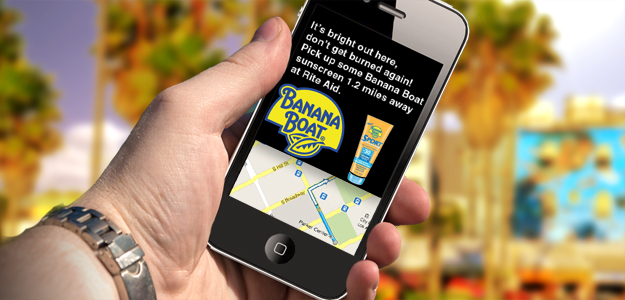
Unless you’re a major Trekkie, you probably didn’t notice a new app for iOS and Android released this morning by Paramount Pictures. Named after the upcoming Star Trek film by director J.J. Abrams, “Star Trek Into Darkness” seems like just another fanboy app – but it isn’t. It’s a crystal ball, a peephole into the potentially terrifying future of mobile data collection.
“Star Trek Into Darkness” is one of the first apps available in the United States to utilize an impressive new “context awareness platform” from mobile chip giant Qualcomm called Gimbal. Announced last summer, Gimbal taps into every sensor in your smartphone – camera, microphone, compass, temperature sensor, light sensor, accelerometer, GPS, Bluetooth, Wi-Fi radio – to collect information about intimate aspects of your life: what you see, what you hear, where you go, and what you do when you get there. Gimbal knows which apps you use, which websites you visit, which songs you listen to, the photos you take, and more. And all of this personal information can be made accessible to app developers, marketers, and advertisers.
“We’re taking the data from each one of these sensors, or set of sensors, that can be interpreted and used to understand the world that’s around you, and figuring out what it is that gets you to interact at a more human level,” says Ian Heidt, director of product management at Qualcomm Labs.
Now, none of this may seem particularly shocking, unique, or even new. Data miners have been collecting bits and pieces of information about us for years. The things you search for, the websites you visit, the brand pages you “like” on Facebook, the articles you tweet, where you go, the apps you use – all of this is already being collected. So why are we talking about Gimbal?
Because Gimbal puts all of these details about you together in a way that has never before been possible and, according to Heidt, in turn gives those who use it to collect data the ability to understand “real-world behavior” – what we actually do in our lives, in every situation – like never before.
“We’re right on the cusp on seeing a fairly big shift in mobile services,” says Heidt – a shift toward hyper-personalized advertising, hyper-personalized apps, and hyper-personalized services, hyper-personalized everything. And Gimbal is positioned to become one of the main mechanisms pushing us into this fully customized future.
For some, a future in which the technologies we use know almost everything about our lives that happens outside our own heads will come as a blessing. All the content you consume, from apps to advertisements, will be tweaked just for you. For others, however, the benefits of full “context awareness” may not be worth the costs, especially the toll it could take on privacy. After all, the entire purpose of Gimbal is to broadcast many of the details about your life to third-parties, who will use that information to their advantage, to boost their bottom lines. The purpose of Gimbal is, by its nature, the antithesis of privacy.
Qualcomm is fully aware of the privacy implications of Gimbal, and has gone out of its way to make sure the technology does not get attacked for violating our personal space. For starters, Gimbal’s data collection mechanisms are all opt-in – you must give it permission to eavesdrop on your conversations, or track where you go, says Heidt. It also requires that you explicitly allow applications to access the data collected by Gimbal, all of which is stored directly on your device, rather than in the cloud.
All of these efforts are well and good from a privacy perspective. It’s clear to me that Qualcomm is doing everything it can to make Gimbal palpable for users who might be uncomfortable with carrying around a sophisticated monitoring device in their pockets. So my concerns here aren’t with Gimbal specifically, but with the future Gimbal is set to help shape – with the prospect that we will soon be living in a state of constant surveillance, and that we will have brought on this state willingly.
I worry about such a future, not because I’m skeptical of new technologies, but because I’m skeptical of what people will do with our personal information. Qualcomm may be committed to data protection, but what’s to stop the next company that comes along with a “contextual awareness platform” from disregarding such safe measures, especially if we’ve all shown a willingness to participate? And what’s to stop companies, governments, or even individuals from using this data for nefarious means?
At this point, there is no good answer to those questions. By sharing every tidbit about ourselves, we are effectively relinquishing control of who we are to the world at large. That, in turn, means handing over that control to someone else, someone we likely know nothing about. And it is technologies like Gimbal, or even Google Now (a slightly less sophisticated “context aware platform” beloved by Android users), that will massively accelerate this power shift.
In all likelihood, the battle to maintain our private lives is already lost. The cat is, as they say, out of the bag. And there’s no getting that sucker back in. Hyper-personalization is the future, whether privacy advocates want it to be or not. This isn’t entirely a bad thing – the products and services we use will almost certainly improve because of the increasing amount of information we share. They will help us spend more wisely, stay safer, find more things to enjoy. But this does not change the fact that, every time you agree to reveal more about your life, you pay for those benefits with a piece of yourself.


